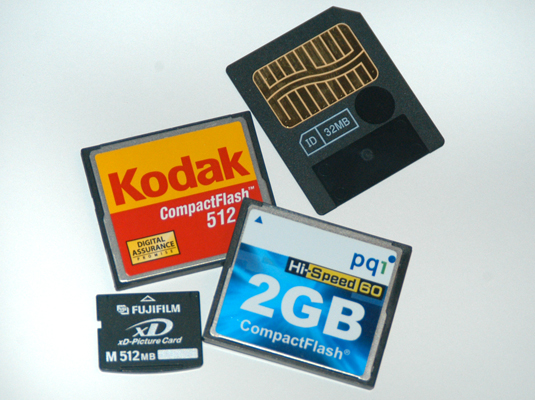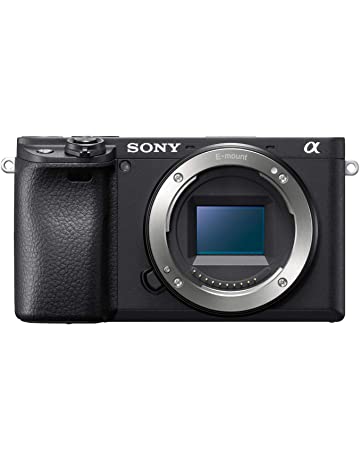
Whether you're an amateur or a professional, there are several ways to learn more about photography. One of the best ways to learn about photography is through quotes. These inspirational quotes can be found online or in printed matter and can be a great tool to improve your craft.
These are the top tips and tricks for improving your photography skills. It is crucial to fully understand your subject's needs before you capture their image. It is also important to get the right mood for your photo. This can be achieved by changing your perspective.
Photos that are truly beautiful are not only beautiful, but they also have a lot of interesting features. Photography is an art of seeing the world differently. The ability to see things differently can make mundane subjects seem more interesting. It could even be the difference in a good or poor shot.

The best photographs also have the most stunning backgrounds. Therefore, you should include a photo taken at the exact location. The best photos include a large landscape such as a lake, river, or other natural feature. A variety of elements will be added to your photo, such as rocks, trees and other elements. This will add more personality.
One of the most fun things to do with a camera is to capture the best of what you see. Your camera might be your best friend for your photography hobby. You're likely to have seen several interesting lighting situations before.
While you're at it, you should also take a look at some of the most famous photography quotes of all time. Some of the most interesting ones are those that speak to the best practices in the art of photography. These are also applicable to real life.
The best photography quotes will make you stop and think. These quotes could be as simple as a quote on paper or as big as a T-shirt. They are also great for motivating yourself to improve your photographic skills.

The best photography quotes will not only inspire you, but also serve as a benchmark for your own attempts at this art. Comparing yourself with the best will help you see that your efforts may not be as impressive as you thought. This will motivate you to improve your skills and possibly even help you find the special person you have always wanted to photograph.
A few of the most memorable photography quotes can also be a reminder to slow down and allow yourself to enjoy the natural beauty around you. These are small tasks, but they are crucial. It's in these moments that you'll find your true passion, and perhaps you'll even come to appreciate photography for what it really is.
FAQ
Photography is a talent?
Photography isn't a talent, it's an art form that takes practice, training, as well as experience. The art of photography requires years of practice and dedication to mastery.
You need to plan how you will make money in photography.
You need to know what type of clients you are looking for and how you can reach them.
You must understand their motivations and who they are. To convince them to purchase your services, you need to be able to communicate clearly.
This means that you will need to be well-organized and prepared when you meet potential clients.
You will need to have a portfolio of work before you can approach potential customers. You can either create a portfolio digitally with software programs, or print it on paper.
Once you have created your portfolio, you need to find opportunities to display it. You could approach businesses directly or post ads online.
Do I Need A Tripod?
This is a question everyone asks. The truth is that a tripod isn't always necessary, but it can come in handy.
It allows you to hold your camera steady when taking pictures at slow shutter speeds. If you're shooting landscapes or other stationary subjects, then a tripod can make a big difference.
However, a tripod can blurriness if you are photographing moving subjects, such as people or athletes. How do you determine which situations need a tripod?
A tripod is useful for any situation where you want to photograph fast action or stationary subjects. Examples include:
-
Sports
-
People
-
Landscapes
-
Close-ups
-
Macro shots
You can use this test to determine whether you need a tripod. Hold your camera still and look through the viewfinder. You will need a tripod if you see blurred lines and movement.
A tripod won't make any difference if there is no blurring.
If you do decide on a tripod purchase, these are some things to remember.
-
Smooth legs are a must for your tripod. This helps to prevent vibrations from shaking the camera.
-
Choose a sturdy tripod. Some tripods can be made out of plastic but they are not very durable. You should opt for a steel tripod.
-
Buy a remote release. This lets you control your camera remotely. You can set it to fire the shutter once you press the button automatically.
-
A tripod that can rotate 360 degrees is a good choice. This makes it much easier to position your cameras horizontally or vertically.
-
Be aware that tripods are not cheap. Expect to pay $100-200. But, you will get a lot for your buck.
-
Accessories like memory cards and filters should not be forgotten.
-
Before buying online, check with your local store. Many retailers offer free shipping.
-
Review a product to find out what other customers think.
-
Ask family members or friends to share similar products.
-
Visit forums and message boards to learn about customer experiences.
-
Look online for user reviews.
-
Amazon.com is a website that allows you to compare prices and get customer feedback.
-
View photo galleries to see the different uses of tripods by photographers.
Which is the best camera to use for beginners?
The best camera to use for beginners is dependent on your needs, budget, and skill level.
If you are looking to save money, then a point and shoot digital camera might be the best option. These cameras are not very versatile but offer excellent quality.
Digital Single Lens Reflex (DSLR) cameras have interchangeable lenses that allow you to shoot various types of shots. They usually cost more than point-and-shoots but give you much greater flexibility.
For beginners to photography, the beginner's set is a great place for you to start. Everything you need, including a flash, tripod, memory card and camera body, will be included in the one-pack.
You should also remember to buy additional batteries.
Why use Light Room to enhance your pictures?
The best way to ensure you have the perfect photos for your project is to start early. It's always better to take as many shots as possible and then pick the ones that will give you the most bang for your buck.
Lightroom makes it easy to do this. It lets you see how different settings impact each photo. These settings can also be modified on-the-fly in Lightroom without ever having to open Photoshop again. This allows you to quickly experiment with what looks good and what doesn’t.
Statistics
- While I cannot prove that all of those spots were not sensor dust, the photo was taken during a heavy snowstorm…so I guess that 99.8% of the spots are snowflakes. (bhphotovideo.com)
- By March 2014, about 3 million were purchased monthly, about 30 percent of the peak sales total. (en.wikipedia.org)
- That's the easiest way to get blurry photos 100% of the time. (photographylife.com)
- In this case, 100% of readers who voted found the article helpful, earning it our reader-approved status. (wikihow.com)
External Links
How To
What are the skills to be a photographer?
For any photography job, you will need to have technical and artistic knowledge as well as business acumen.
Technical knowledge covers understanding exposure settings, camera functions lens types, speed, and developing techniques.
An artist's ability is to understand composition, lighting, and pose.
Business acumen covers budgeting, scheduling, time management, and dealing with clients.
You should be interested in photography as a hobby from an early age if you wish to be a professional photographer.
Take classes at school, college, or online to learn more about photography.
You will also find many books on photography that can help you.
As well to learning about photography, it is important to develop your own style.
This will help you stand out from others who work in this field.
Photography has evolved over the years. In the past, people used cameras such as Kodak Instamatic or Polaroid instant cameras.
Today digital cameras are more popular than ever before. Most photographers now use their smartphones for taking photos.
While it is possible for a smartphone to capture high-quality images, if you want to really get into photography, a DSLR (Digital Single Lens Reflex Camera) is the best choice.
The DSLR lets you control every aspect your photo including shutter speed and aperture, ISO sensitivity, white-balance, focus, and white balance.
These features enable you to create stunning photos and different effects.
These controls can also alter the mood of your image.
You could, for example, make your subject blurry using a fast shutter speed.
You can also make them appear more mobile by increasing the light that enters the camera.
You can also change the scene's color temperature to alter the mood.
To give the image a warmer feeling, increase the red content if there is a lot of blue light.
It can be confusing to know where to point your camera.
But once you grasp the basics, it won't be so difficult.
In fact, it is much easier than you think!
You will likely start off by only shooting landscapes and close-up shots.
You can capture any type of image, from portraits to abstracts, with experience.
Once you have learned the basics, it is possible to move on with more advanced subjects.
These are some tips to get you started.
-
Find a peaceful place. Places that allow you to relax and have fun are best.
-
Look for something to photograph. Look for things that are unusual or unique.Try photographing flowers, animals, or even insects.
-
Take plenty of practice pictures. Practice makes perfect!
-
Experiment with different angles. Hold your camera differently depending on what you are trying to achieve.
-
Use different lenses. Different lenses can offer you different perspectives.
-
You can also shoot in low-light conditions. Photographing in bright sunlight can prove difficult.
-
Try framing your shot. It is important to practice framing your shot when taking a photograph.
-
Learn how to set up your camera settings. You can improve your photography by spending time with your camera settings.
-
Keep learning new techniques. There are many ways to learn about photography.Visit local exhibitions, galleries, museums, and libraries.
-
Read magazines and books. Photography books will give you all the information you need.
-
Join a club. Photograph clubs often host events that encourage members sharing their work.